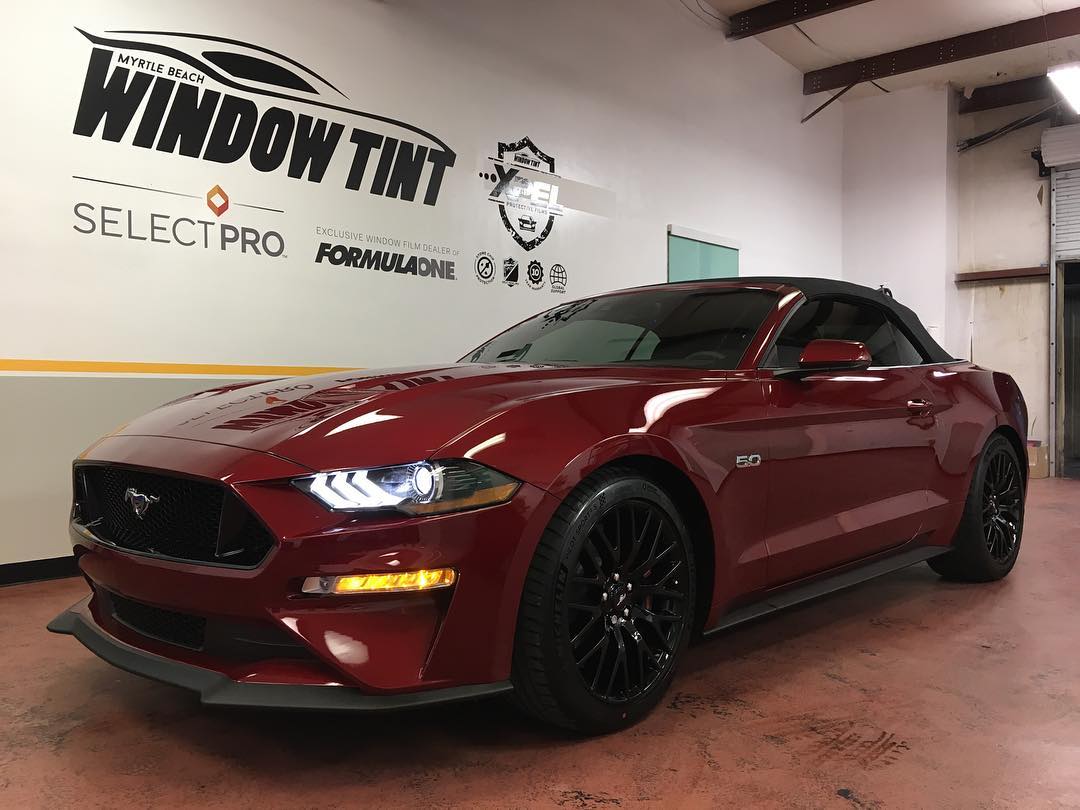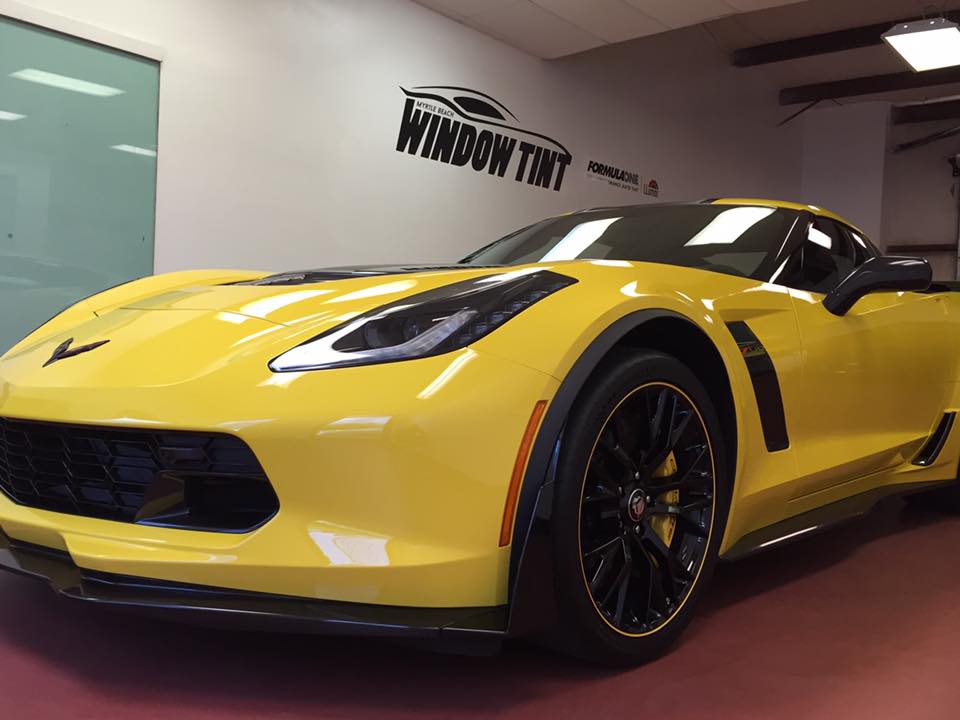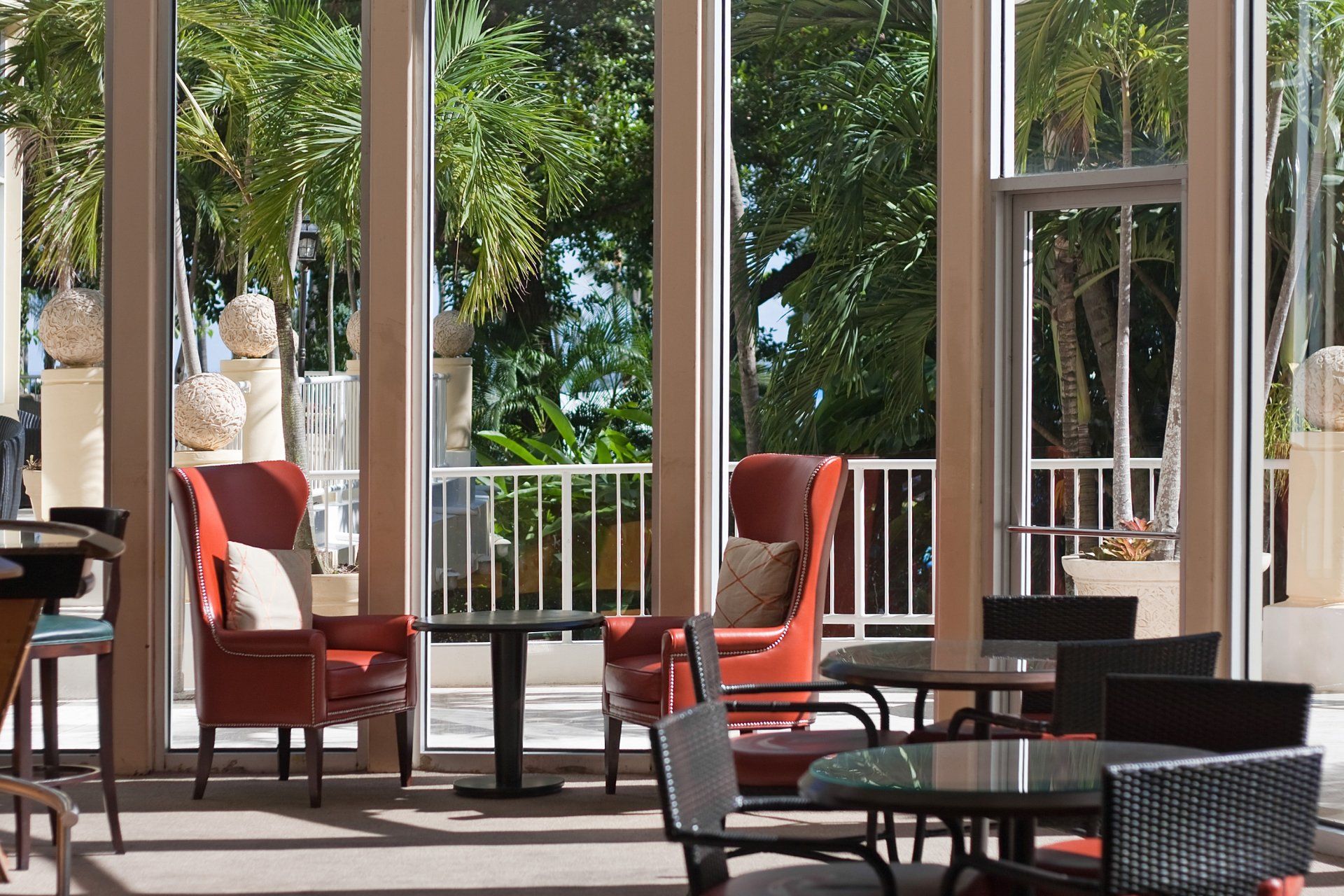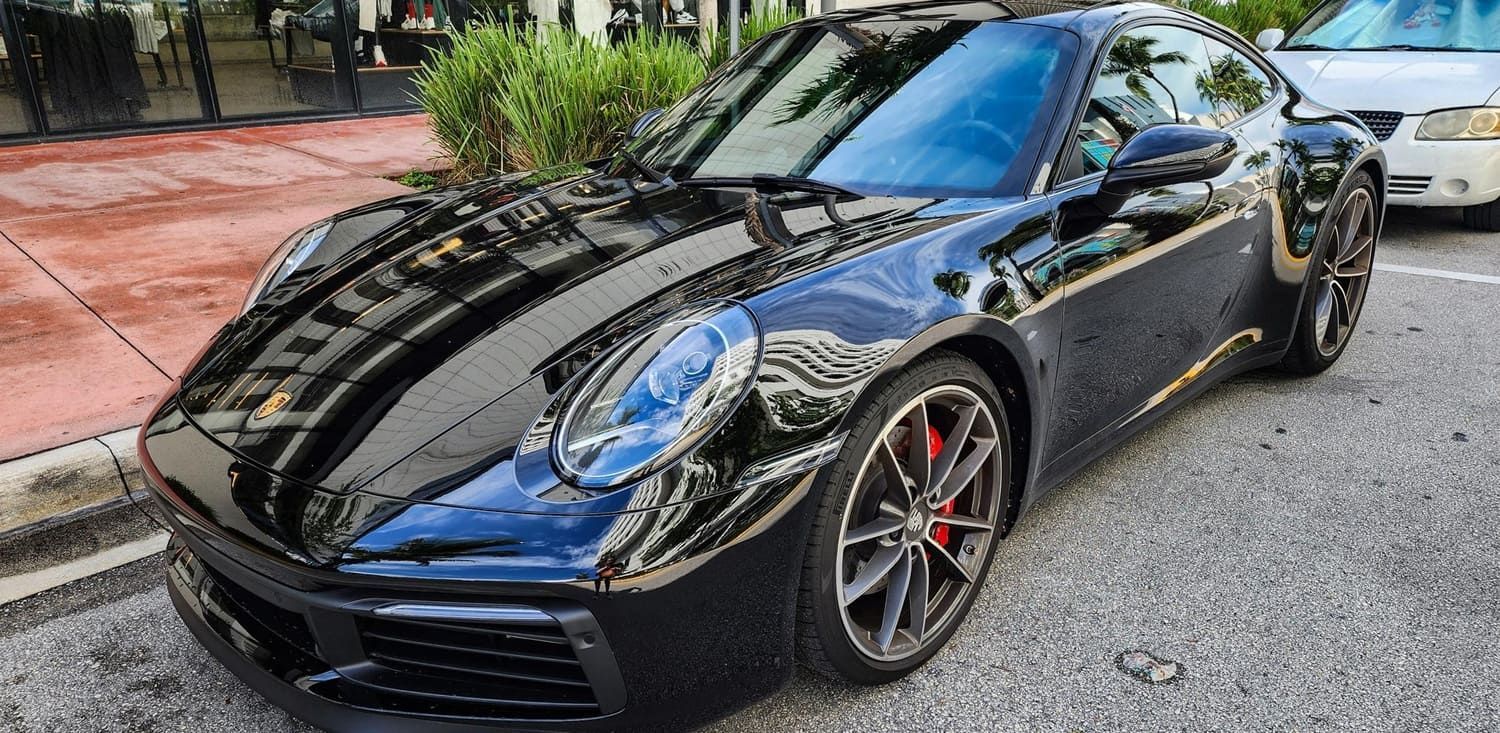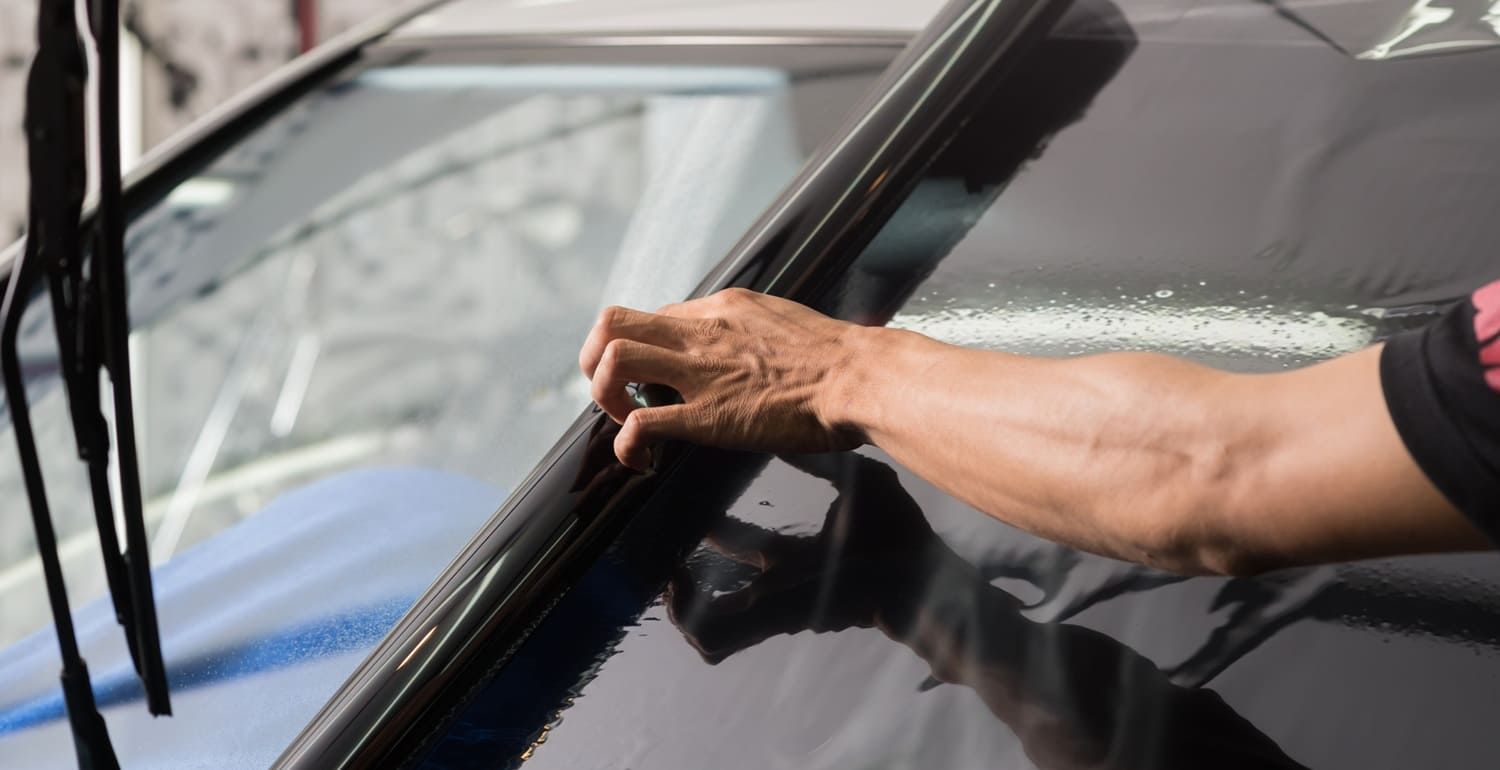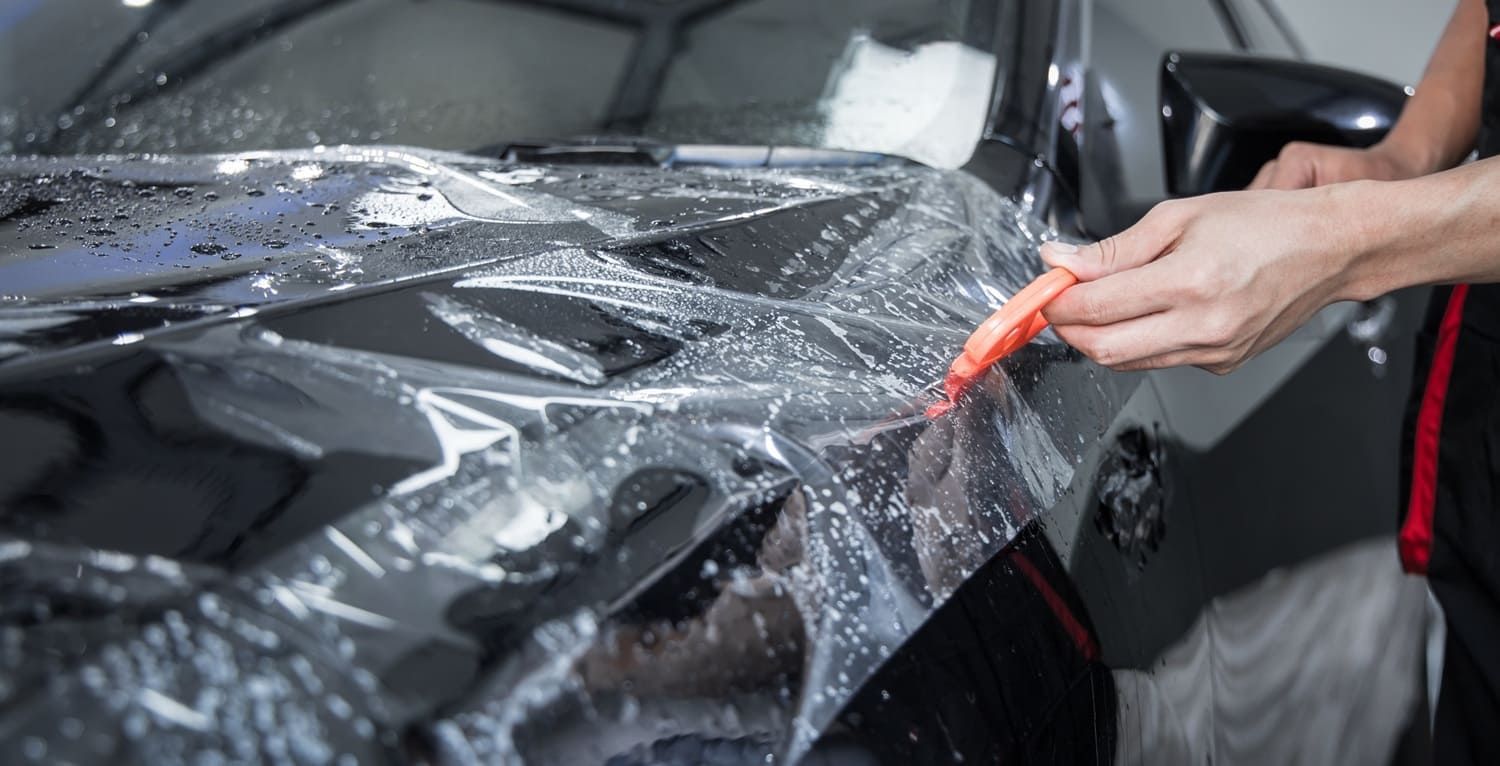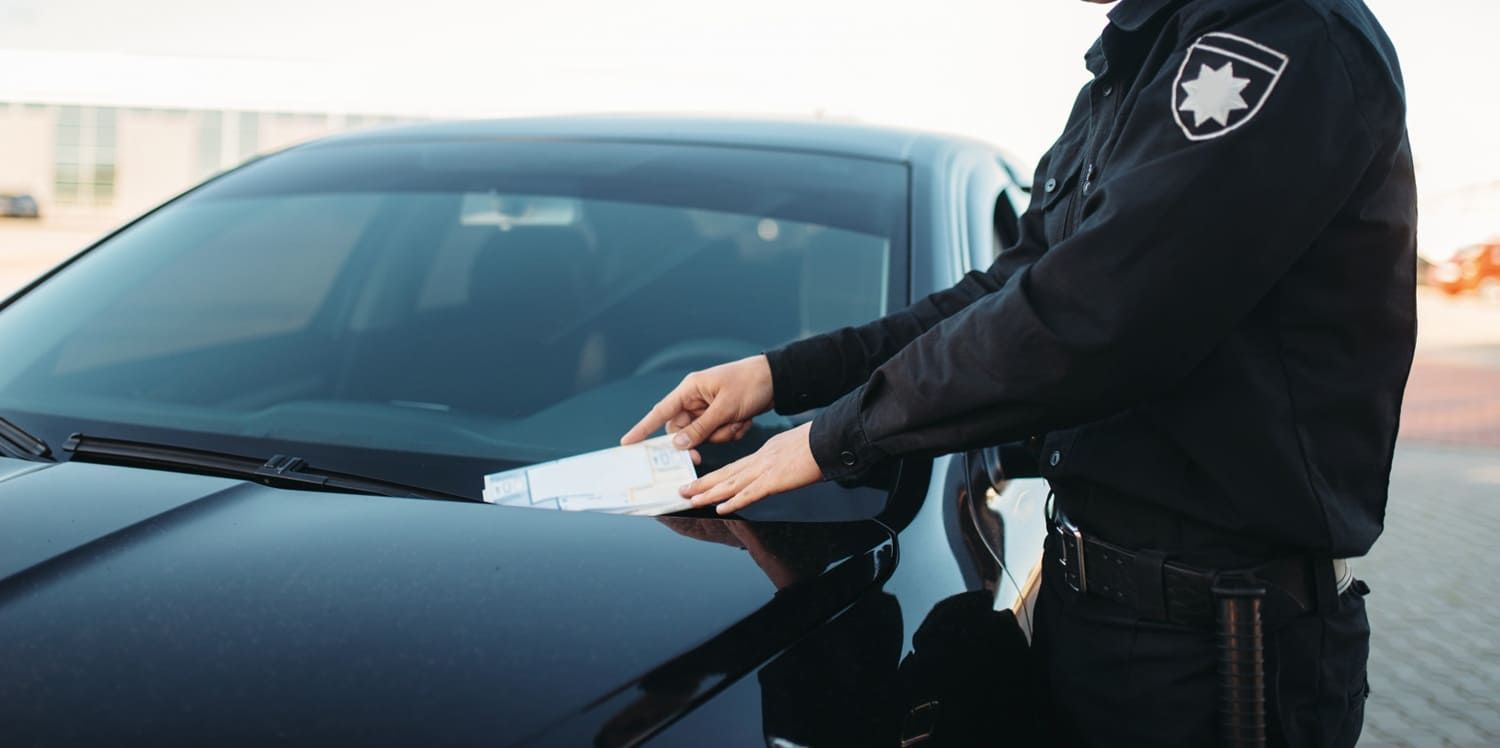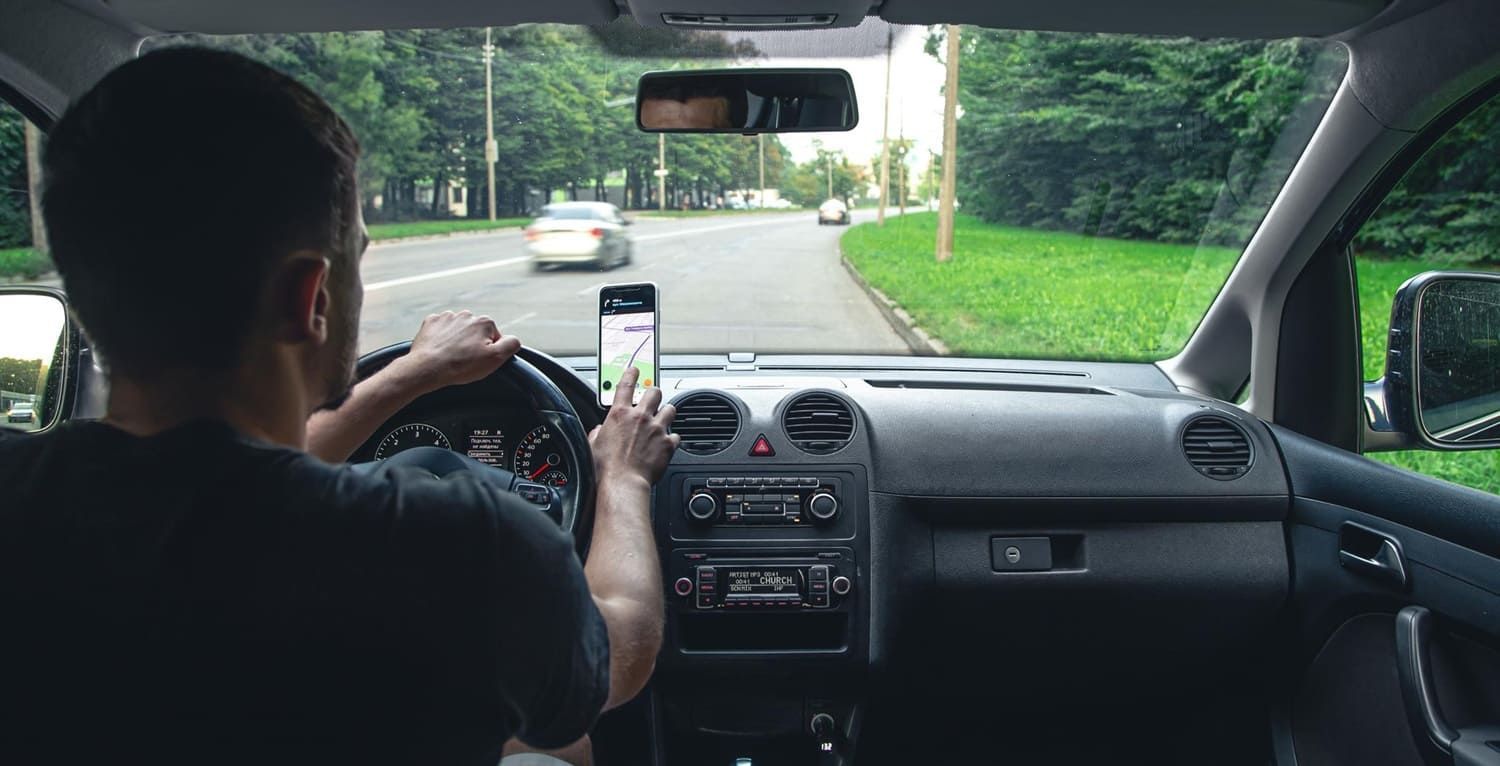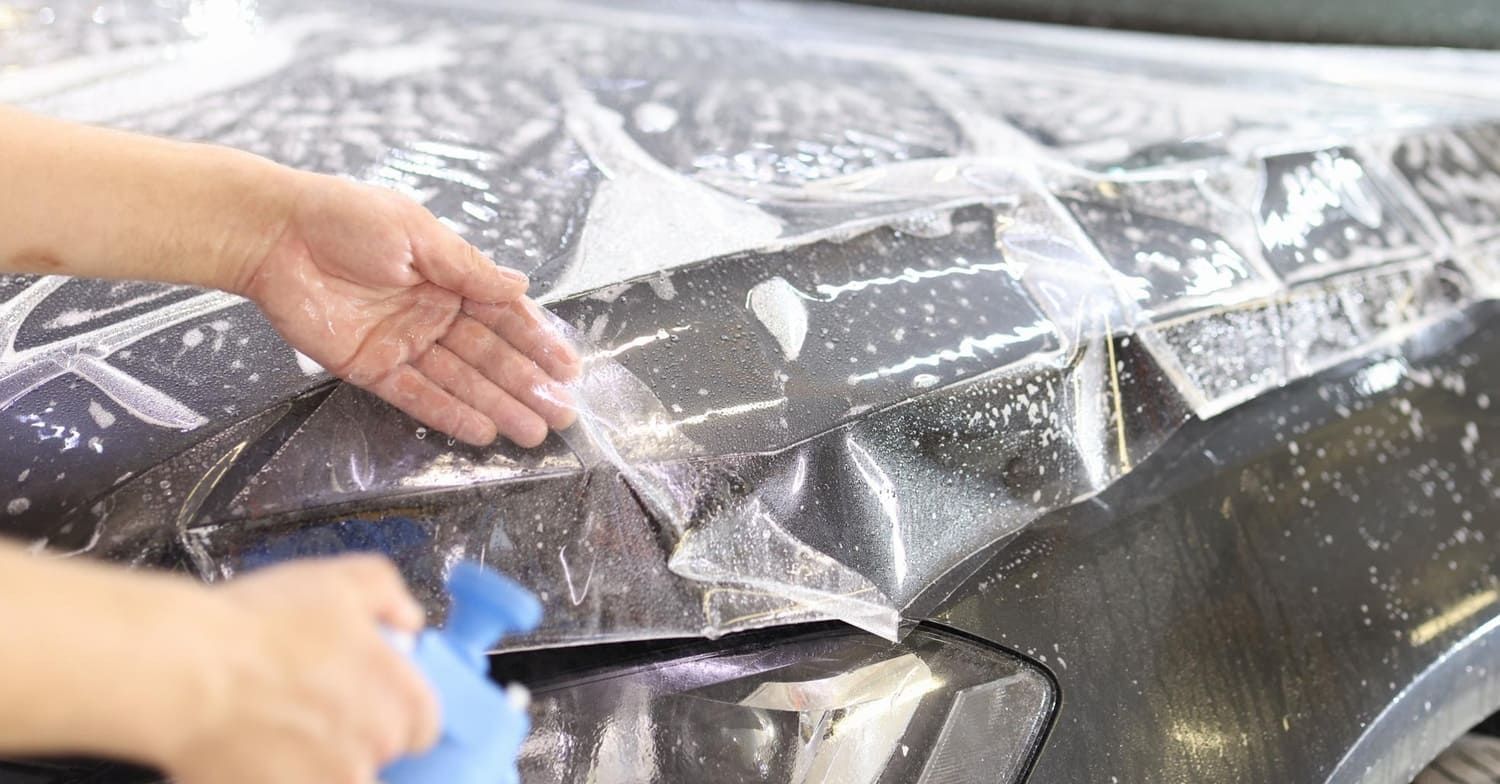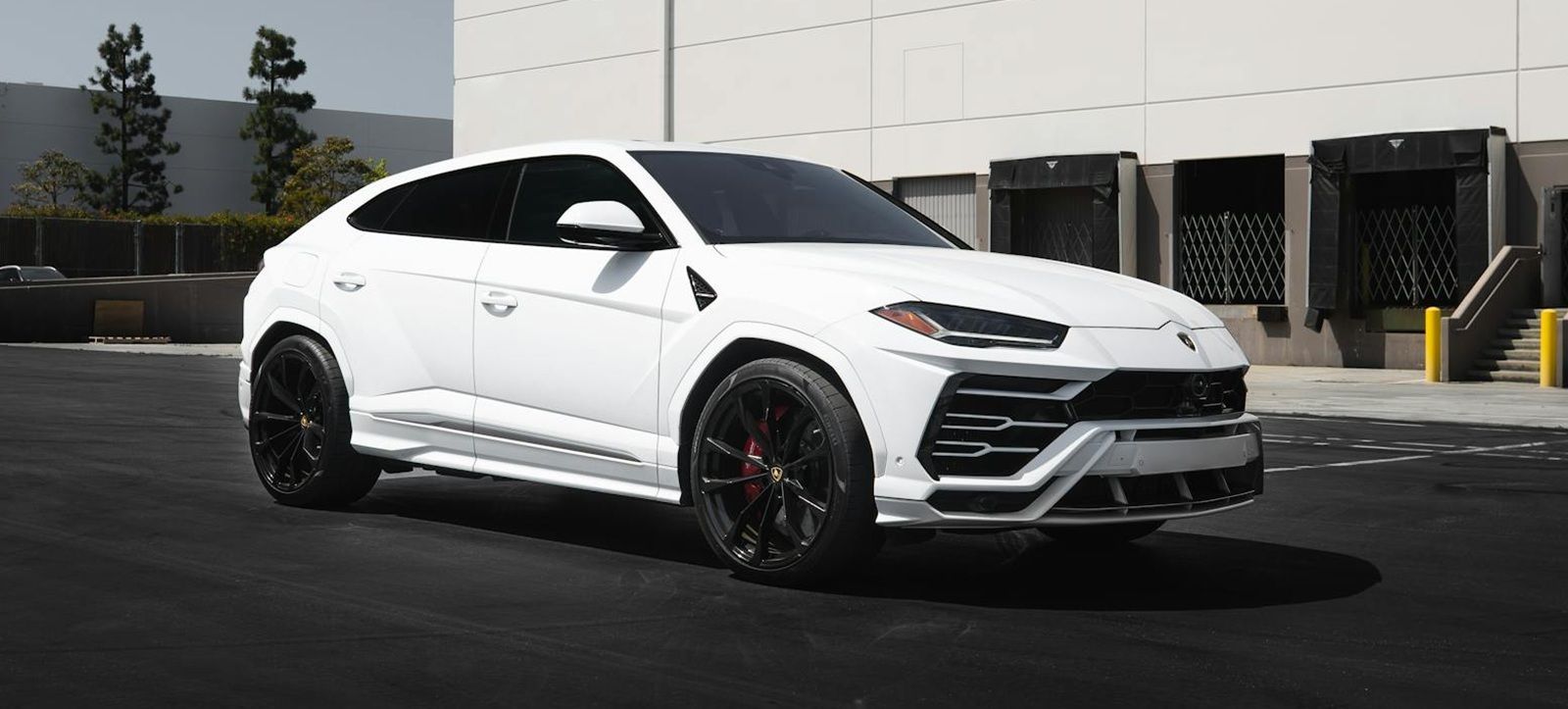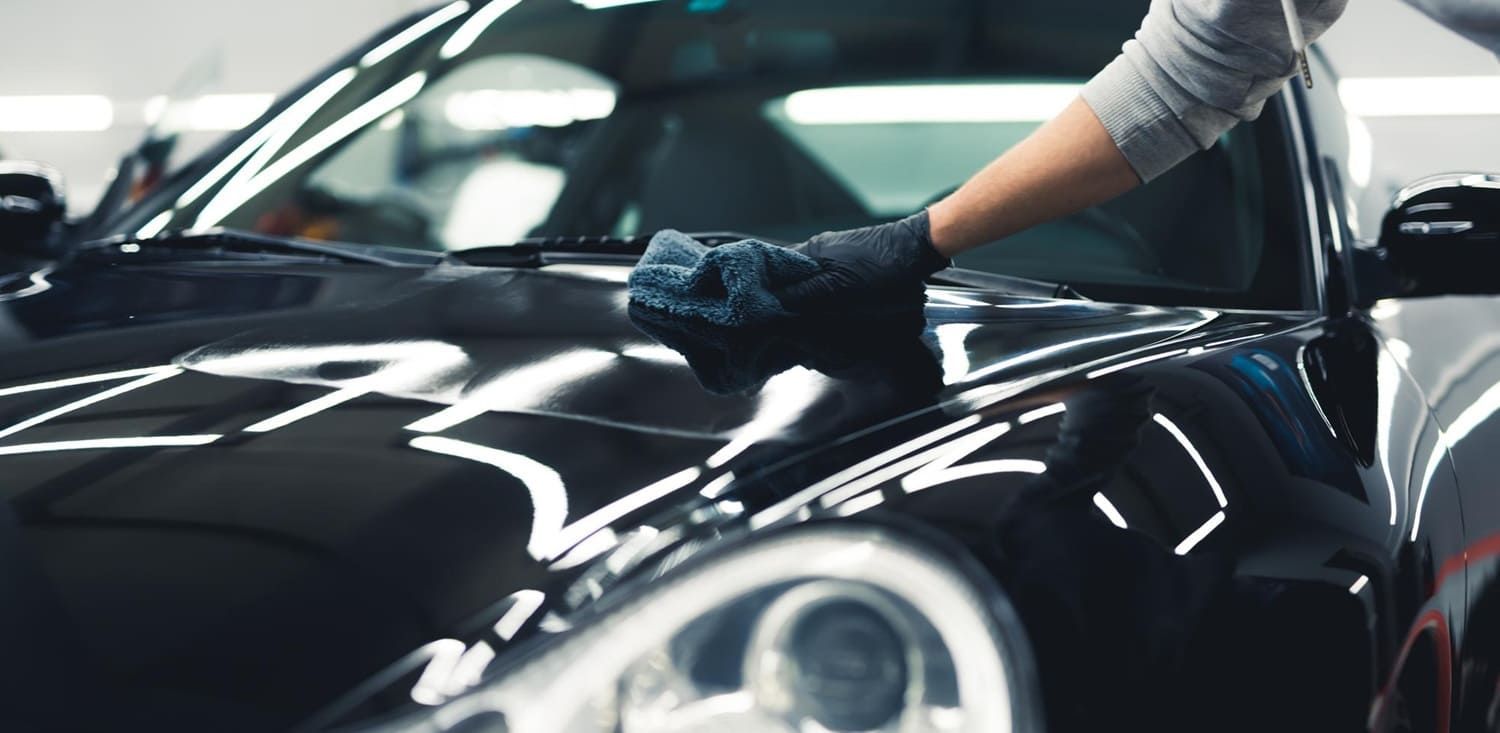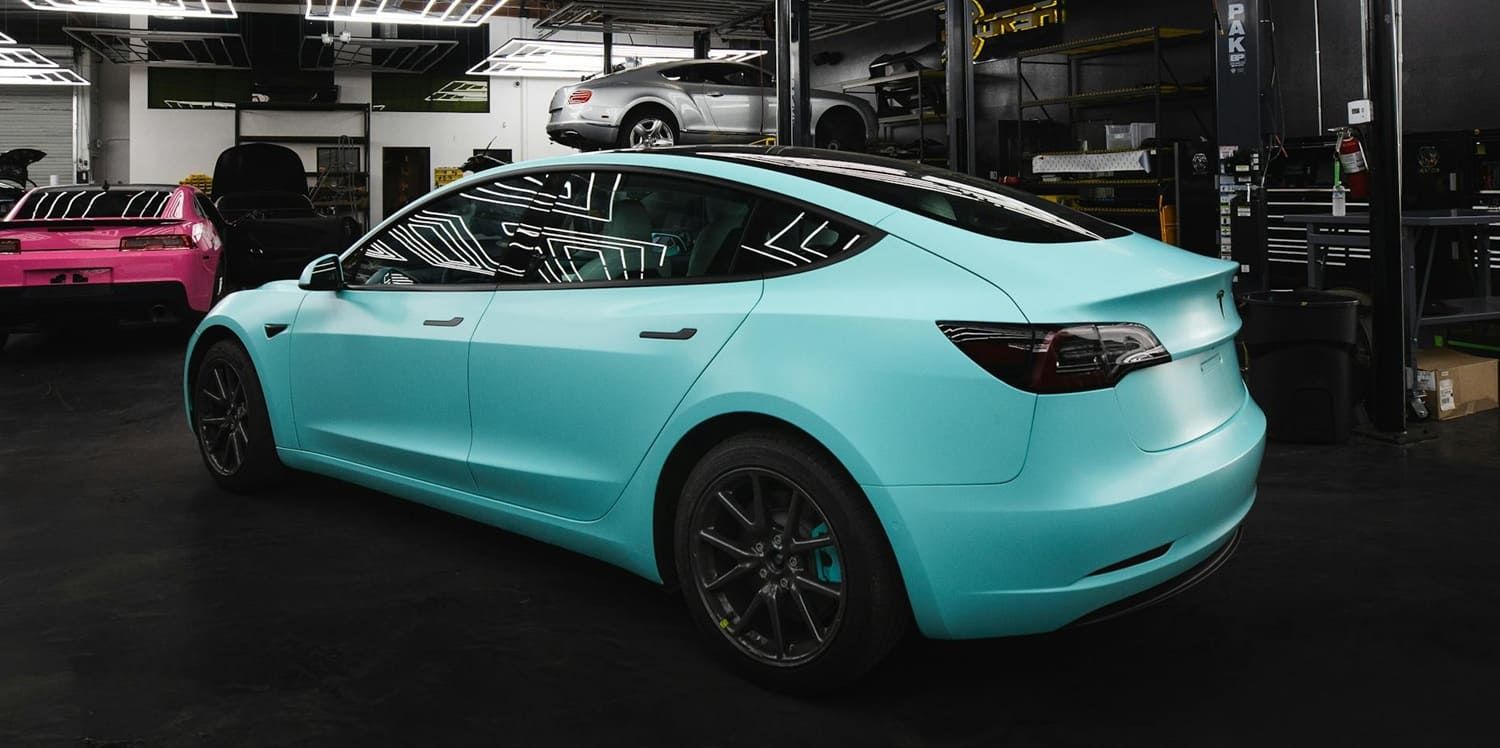How to Choose the Right Window Tint for Your Car in Myrtle Beach
Before diving into the selection process, it's essential to understand what window tinting is and how it works. Window tinting involves applying a thin, transparent film to the interior side of a car's windows. This film can vary in color and thickness, and it's designed to reduce the amount of sunlight and UV rays that enter the vehicle. The technology behind window tinting has evolved, offering more sophisticated options with advanced materials that improve performance in heat rejection and UV protection.
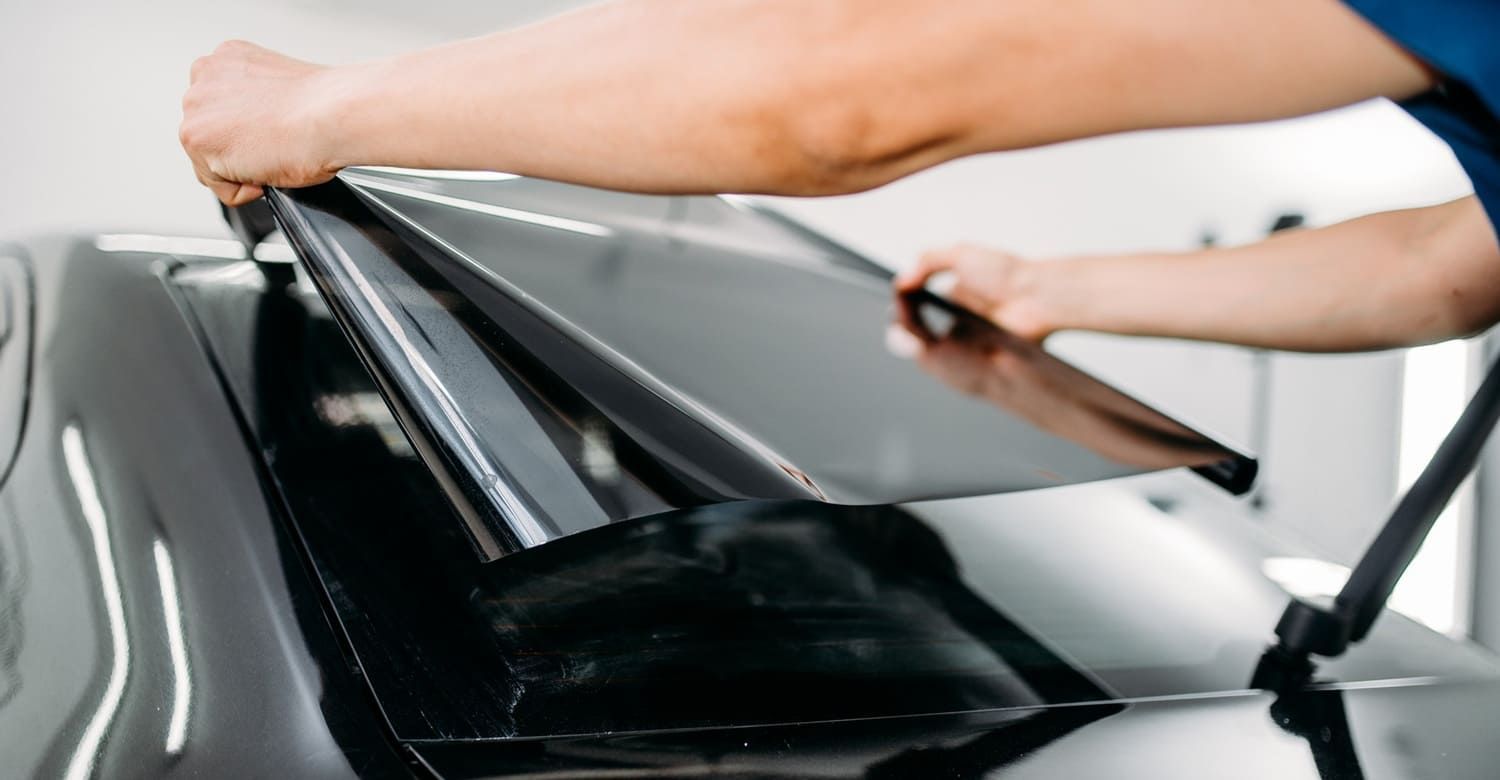
How Window Tinting Works
The window tint film is usually made of polyester because of its durability and clarity. The film is embedded with dyes, metals, or ceramics, which determine its properties such as color, reflectivity, and heat rejection capabilities. As sunlight hits the window, the tint absorbs or reflects the rays, minimizing the amount of heat and light passing through. This process not only aids in cooling the vehicle but also reduces the reliance on air conditioning, leading to better fuel efficiency.
Benefits of Window Tinting
There are several advantages to tinting your car windows:
- Heat Reduction: Tinted windows can block up to 60% of solar heat, keeping your car cooler during hot Myrtle Beach summers. This can be particularly beneficial during peak summer months when temperatures soar, making car interiors unbearably hot. A cooler car interior means more comfort for passengers and less wear and tear on your vehicle's air conditioning system.
- UV Protection: Quality tints can block up to 99% of harmful UV rays, protecting your skin and preventing interior fading. By blocking these rays, tints can help preserve the color and integrity of your car's upholstery, dashboard, and other interior components. This protection is crucial not just for the car but also for your health, as prolonged exposure to UV rays can lead to skin damage.
- Glare Reduction: Tinting reduces glare from the sun and headlights, improving visibility and reducing eye strain. This is particularly helpful during dawn or dusk driving when the sun is low in the sky or when driving at night with oncoming headlights. By minimizing glare, tints contribute to safer driving conditions and a more comfortable ride.
- Privacy and Security: Tinted windows provide added privacy and can deter potential thieves by obscuring the view into your car. This added privacy ensures that valuables left inside the car are not easily visible, thereby reducing the risk of theft. Additionally, the sense of privacy enhances the driving experience, making passengers feel more secure.
- Enhanced Appearance: Window tinting can give your car a sleek, customized look. Different shades and colors of tint can complement the car's exterior, adding to its aesthetic appeal. Many car owners see tinting as an extension of their personal style, allowing for a level of customization that reflects their taste.
Types of Window Tint
When selecting window tint, it's crucial to understand the different types available. Each type has its own set of features and benefits, which can significantly impact the performance and appearance of your tint.
Dyed Window Tint
Dyed window tint is one of the most affordable options. It consists of a layer of dye between an adhesive layer and a protective top coating. This type of tint absorbs solar heat and reduces glare but may fade over time. Despite its affordability, dyed tints can offer a respectable level of privacy and a non-reflective finish that appeals to many car owners.
- Pros: Cost-effective, reduces glare. It's an excellent choice for those on a budget who still want to achieve a cooler car interior and a degree of privacy. The non-reflective nature of dyed tints makes them a popular choice for those who prefer a subtle look.
- Cons: Less durable, may fade. Over time, exposure to sunlight can cause the dye to degrade, leading to a purple hue and reduced effectiveness. This fading can detract from the appearance of the vehicle, necessitating replacement sooner than other types of tints.
Metallic Window Tint
Metallic window tint contains tiny metallic particles that reflect heat and UV rays. This type of tint is durable and effective at blocking heat but can interfere with electronic signals. The reflective finish of metallic tints gives them a shiny, mirror-like appearance, which some find appealing for its modern look.
- Pros: Durable, effective heat reduction. The metallic particles create a barrier against heat, significantly lowering the interior temperature of the car. This durability makes metallic tints a long-lasting option that withstands the test of time.
- Cons: Can interfere with GPS and cell phone signals. The metallic nature of the tint can disrupt electronic signals, which may be a concern for those who rely heavily on in-car technology. Users must weigh this potential drawback against the benefits of superior heat and glare reduction.
Carbon Window Tint
Carbon window tint contains carbon particles that block infrared light, reducing heat without affecting visibility. It doesn't fade over time and doesn't interfere with electronic devices. The matte finish of carbon tints provides a sophisticated look that complements many vehicle styles.
- Pros: Fade-resistant, excellent heat reduction. The carbon particles are stable and do not degrade over time, ensuring the tint maintains its appearance and effectiveness. This stability makes carbon tints a wise investment for those seeking long-term performance.
- Cons: More expensive. The advanced technology behind carbon tints makes them pricier than dyed or metallic options. However, many car owners find the durability and performance benefits worth the extra cost.
Ceramic Window Tint
Ceramic window tint is the highest quality option available. It contains ceramic particles that block heat, UV rays, and glare without affecting visibility. It also doesn't interfere with electronic signals. Ceramic tints are renowned for their superior performance and are often the choice of discerning car owners who prioritize quality.
- Pros: Superior heat and UV protection, doesn't fade. The ceramic particles provide unparalleled protection against heat and UV rays, making it a premium choice for comfort and safety. This level of protection ensures that the interior remains cool and the occupants shielded from harmful rays.
- Cons: Highest cost. The advanced technology and materials used in ceramic tints come with a higher price tag. Despite the cost, many regard ceramic tints as a worthwhile investment for their exceptional benefits and longevity.
Legal Considerations in Myrtle Beach
Before installing window tint on your car, it's essential to be aware of the local laws and regulations in Myrtle Beach. These laws dictate how dark or reflective your window tint can be to ensure safety and compliance. Failing to comply with these regulations can result in fines and the need to remove or replace non-compliant tint.
Visible Light Transmission (VLT)
VLT is the percentage of visible light that can pass through your window tint. In South Carolina, the legal limits for VLT are as follows:
- Front Side Windows: Must allow more than 27% of light in. This requirement ensures that drivers maintain adequate visibility and do not compromise safety.
- Back Side Windows: Must allow more than 27% of light in. Similar to the front, this regulation helps ensure that the driver can see clearly and that the vehicle remains safe to operate.
- Rear Window: Must allow more than 27% of light in. Maintaining visibility through the rear window is crucial for safe driving practices, particularly when reversing or changing lanes.
- Windshield: Non-reflective tint is allowed above the manufacturer's AS-1 line. This allowance provides some protection from glare while ensuring the driver's view is not obstructed.
Reflectivity
South Carolina law also restricts the reflectivity of window tints. Your tint should not be more reflective than a standard window. This regulation is in place to prevent glare that could affect other drivers and to ensure that the car's appearance does not significantly differ from typical vehicles.
Tint Certification and Stickers
Ensure that your window tint film is certified by the manufacturer and carries a sticker indicating compliance with state laws. Having this certification can help avoid legal issues and confirms that the tint meets all necessary safety standards. When getting your windows tinted, ask the installer to provide a certification sticker, which must be visible on the driver's side window.
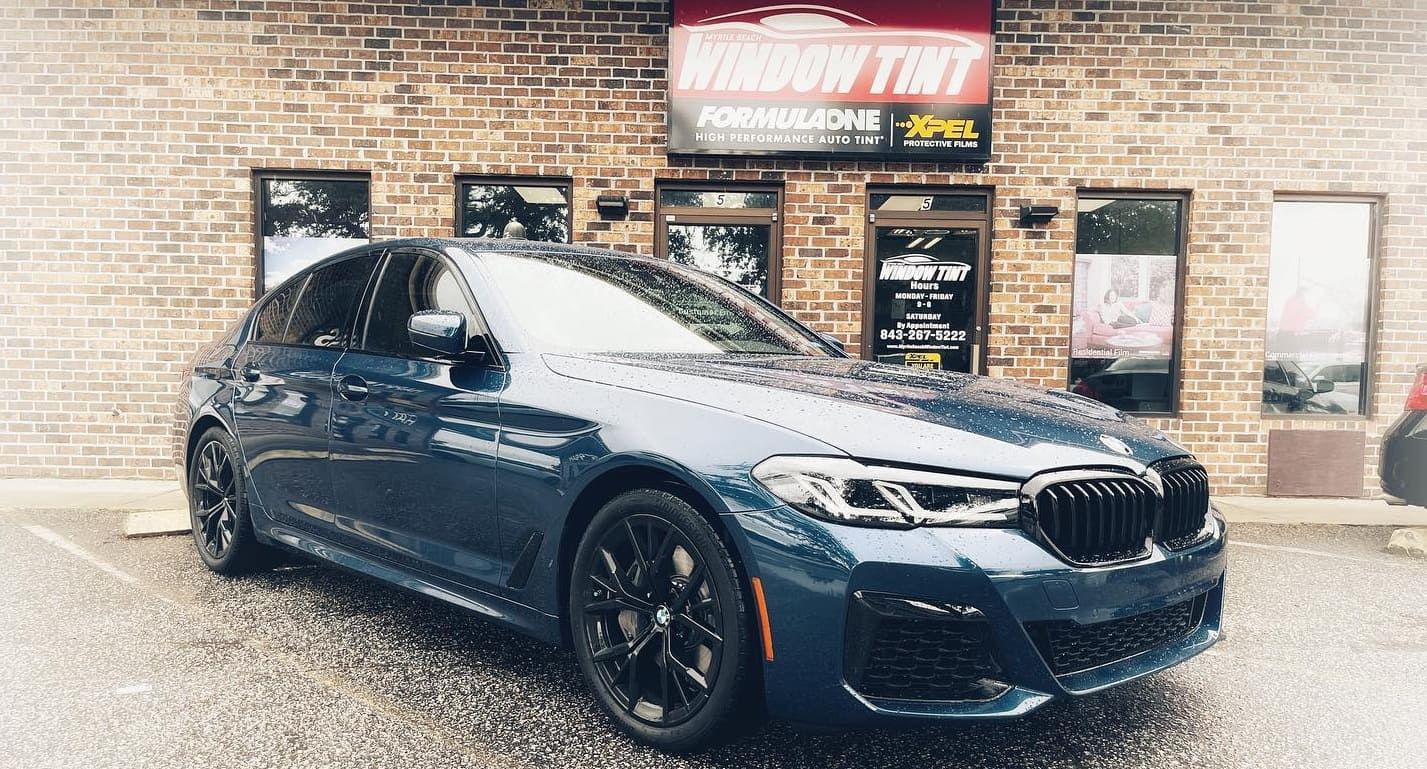
Choosing the Right Tint for Your Needs
When selecting the perfect window tint for your car, consider the following factors:
Climate and Environment
Myrtle Beach's climate is warm and sunny, making heat reduction an important factor. Opt for a tint that offers excellent solar heat rejection and UV protection. Given the area's proximity to the beach, which reflects additional sunlight, a high-performance tint can significantly enhance comfort during drives.
Privacy and Security
If privacy is a priority, consider a darker tint, but ensure it complies with legal limits. A tint with good opacity can also enhance security by preventing prying eyes from seeing inside your vehicle. This is particularly important if you frequently leave valuables in your car or if you prefer a more secluded driving experience.
Budget
While high-quality tints like ceramic offer superior benefits, they come at a higher price. Determine your budget and weigh the benefits against the cost. Consider the long-term savings in terms of reduced air conditioning use and interior protection when evaluating the initial investment.
Aesthetic Preferences
Consider how the tint will complement your car's appearance. Some tints offer a sleek, modern look, while others provide a more traditional appearance. The color and finish of the tint should align with your personal style and enhance the overall appeal of your vehicle.
Professional Installation
Once you've selected the right window tint for your car, it's crucial to have it professionally installed. A skilled installer will ensure that the film is applied smoothly and without bubbles, maximizing its effectiveness and longevity. Professional installation also typically comes with a warranty, providing peace of mind and protection against defects.
Finding a Reputable Installer
Look for a reputable window tinting service in Myrtle Beach. Read reviews, ask for recommendations, and inquire about the warranty and aftercare services they offer. A reputable installer will have a track record of satisfied customers and will be transparent about the materials and techniques they use. Don't hesitate to visit the shop in person to gauge their professionalism and expertise.
Conclusion
Choosing the right window tint for your car in Myrtle Beach, SC involves considering various factors, including the type of tint, legal regulations, climate, and personal preferences. At Myrtle Beach Window Tint, we help you understand these elements and select a high-quality tint that enhances your driving experience and protects your vehicle. By working with our professional installers, you ensure the best results and enjoy the benefits of window tinting for years to come.
Properly selected and installed window tint by Myrtle Beach Window Tint can transform your vehicle, making it more comfortable, secure, and visually appealing. Whether you're looking to reduce glare, block harmful UV rays, or add a sleek aesthetic to your car, our expert team is here to guide you every step of the way. Contact us today for a free estimate and let Myrtle Beach Window Tint enhance your vehicle’s comfort, protection, and style with our premium window tinting services.

